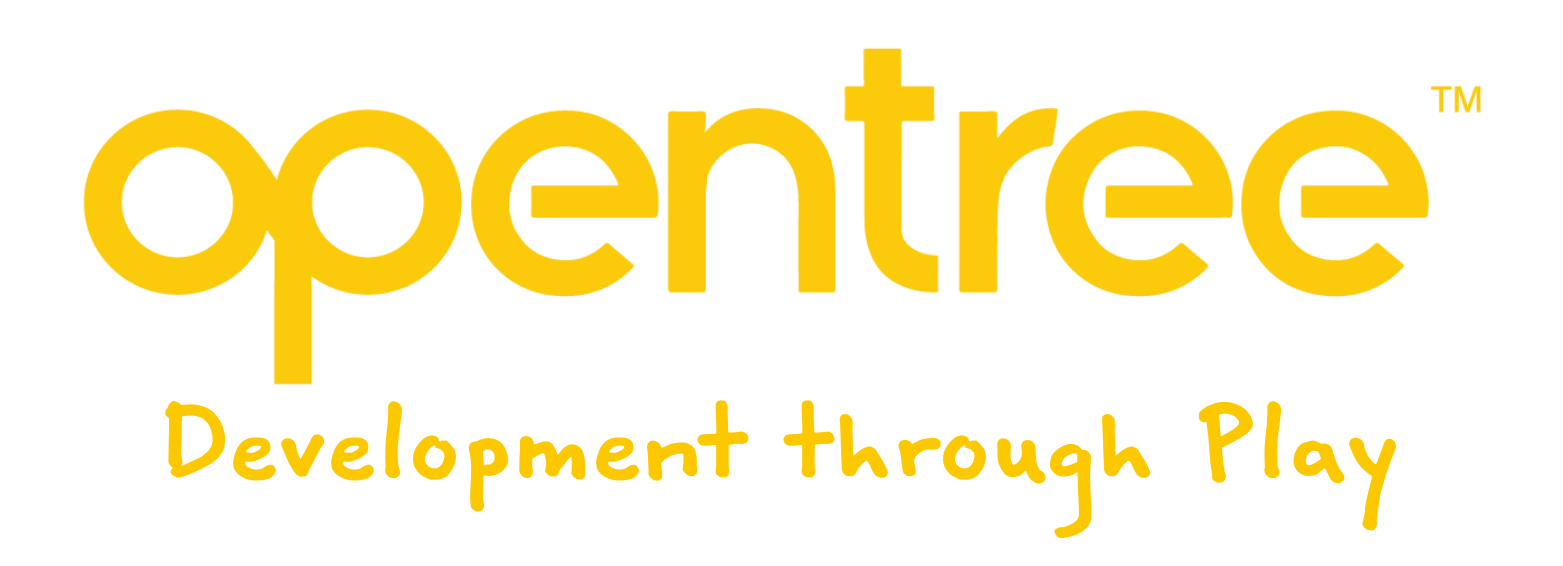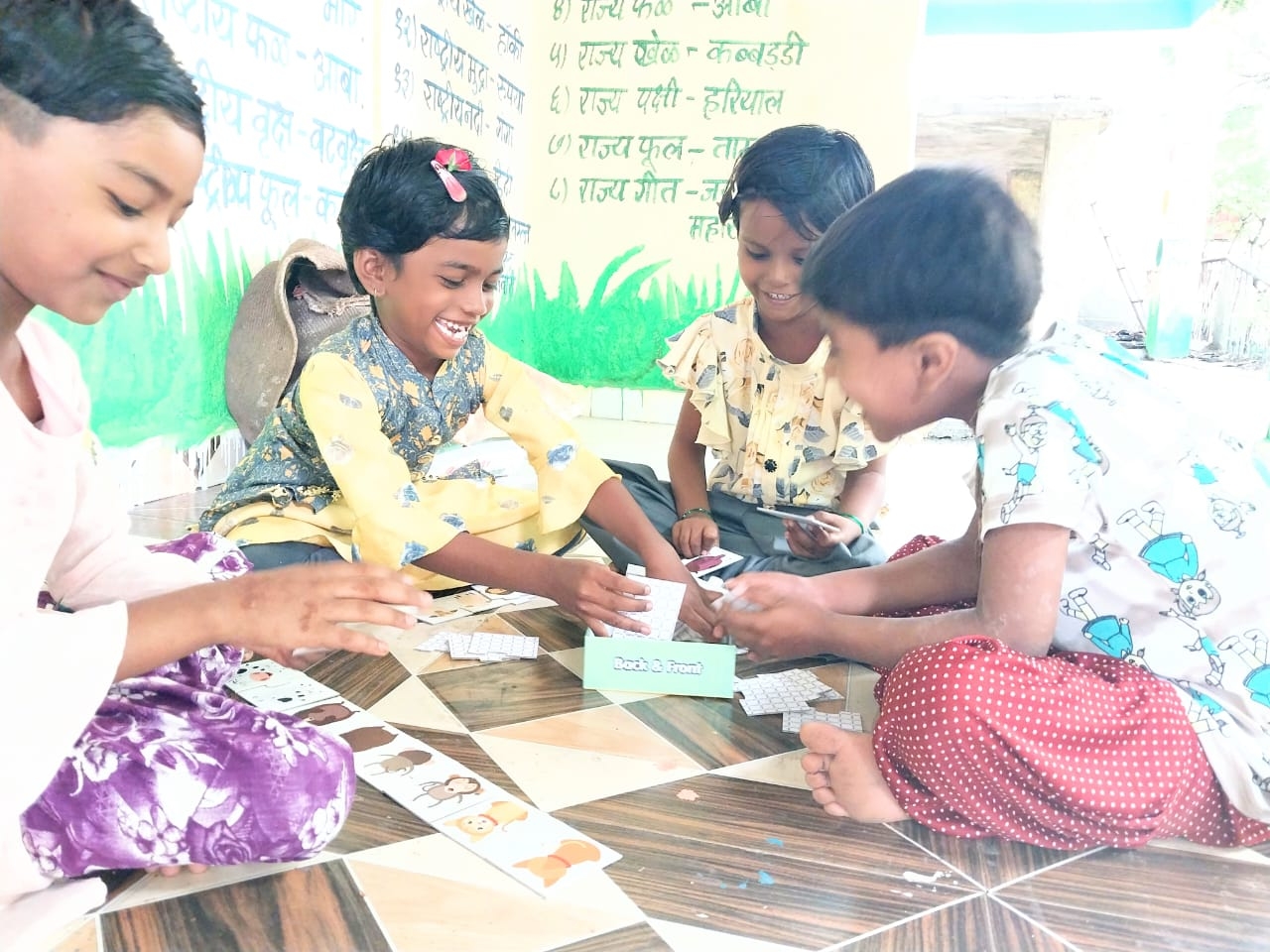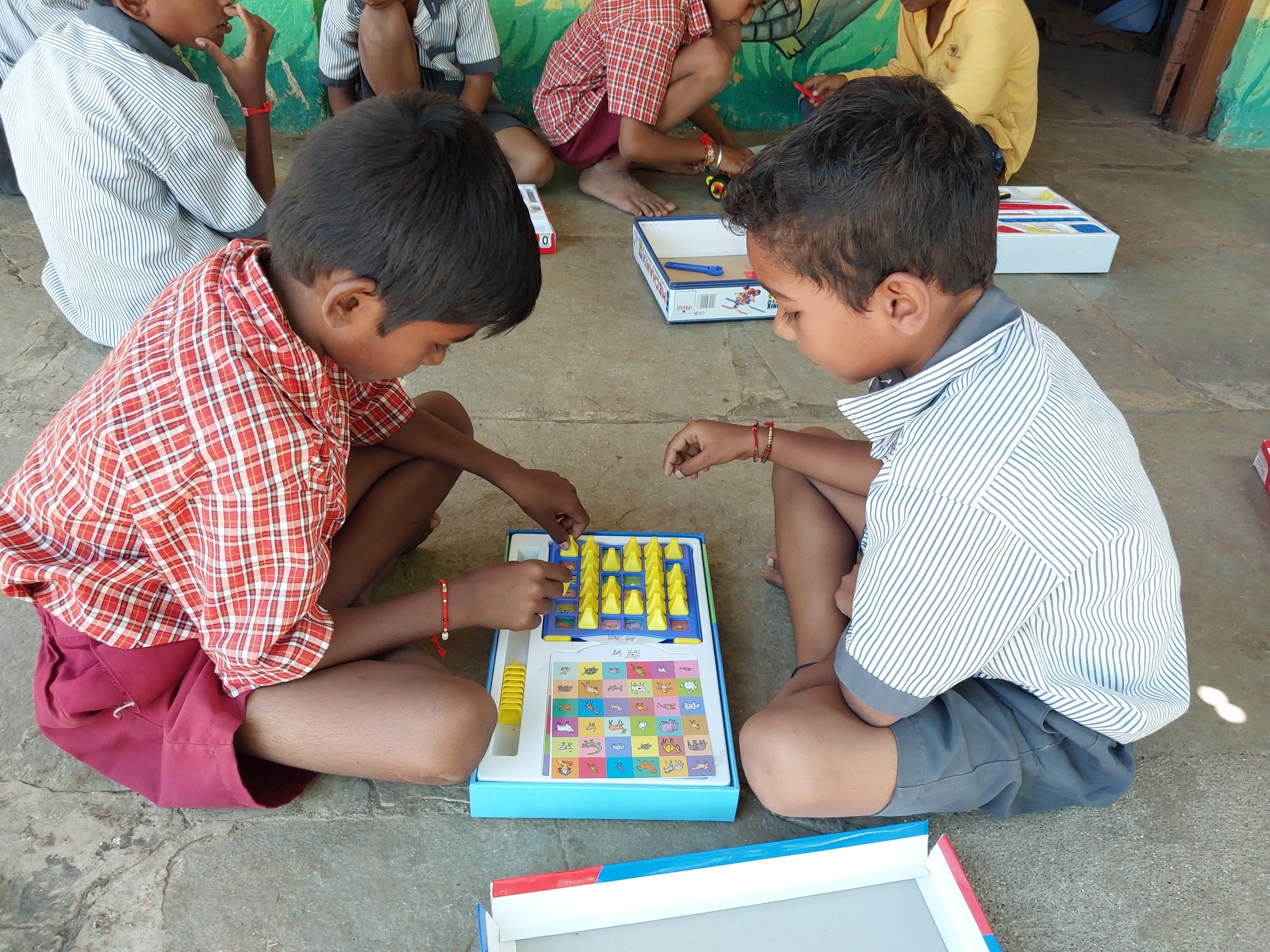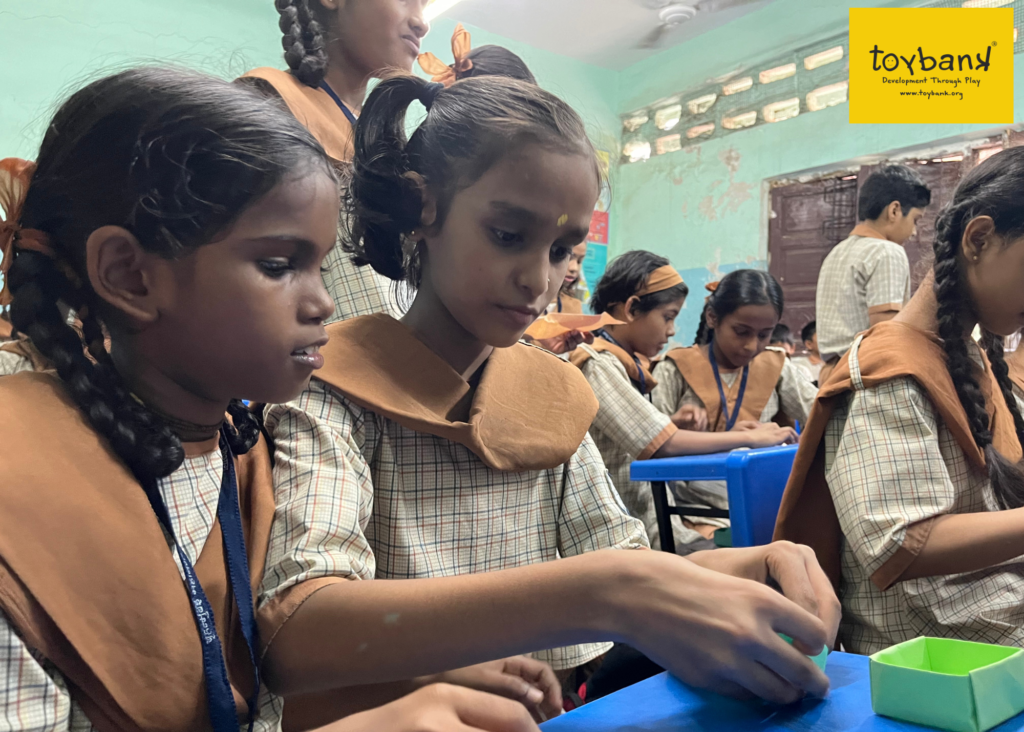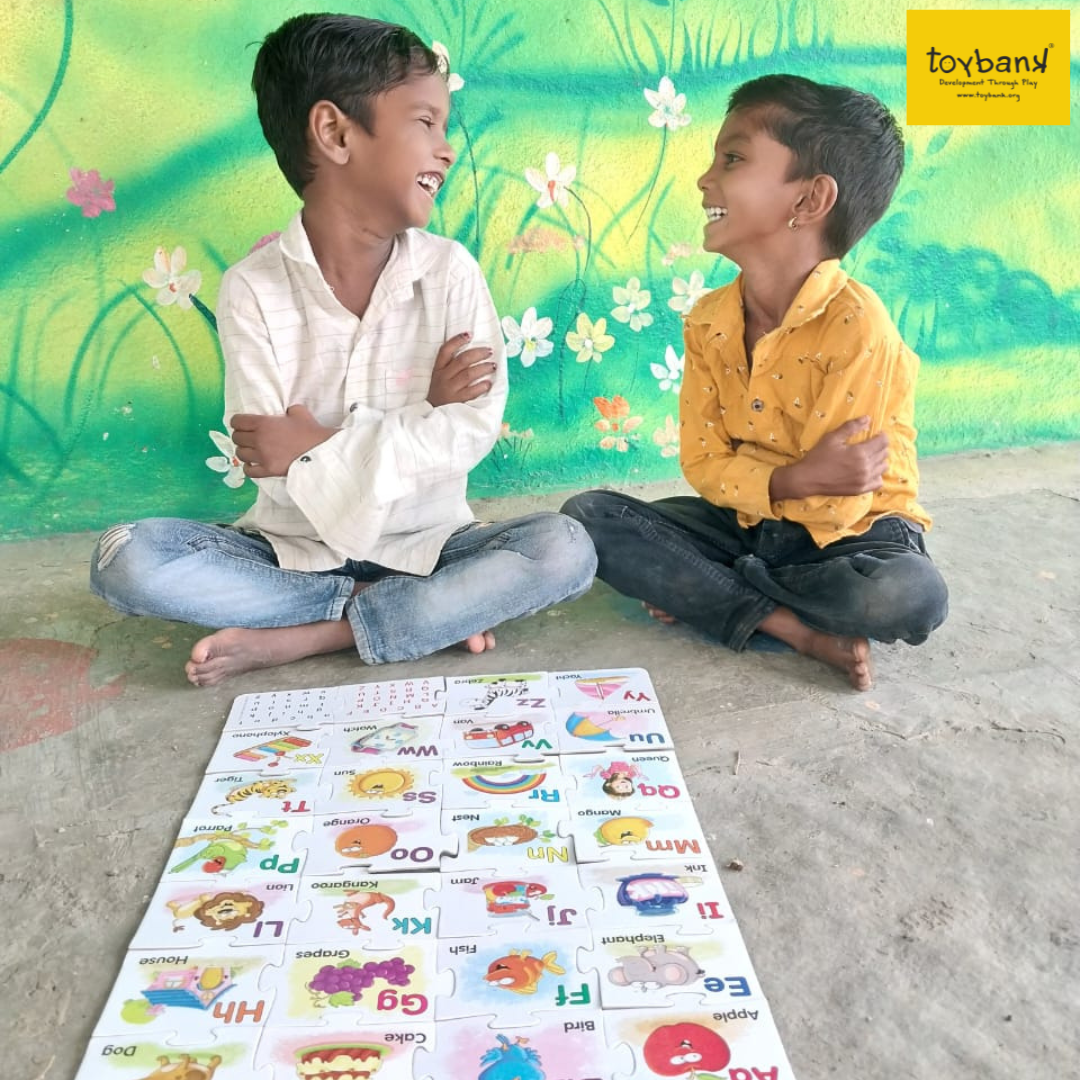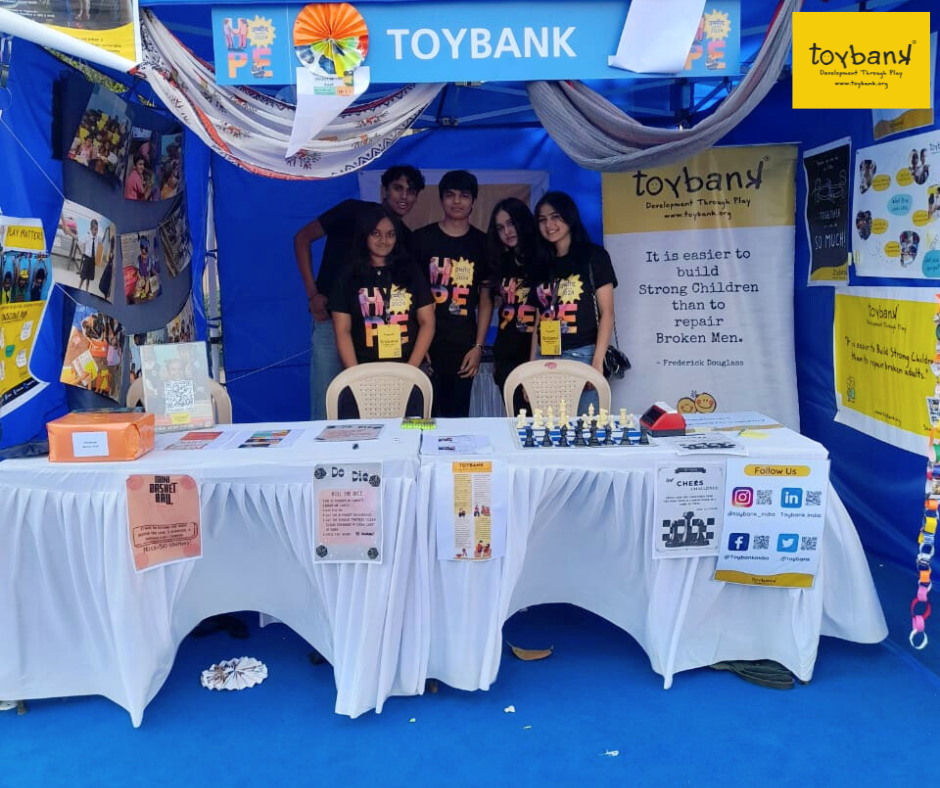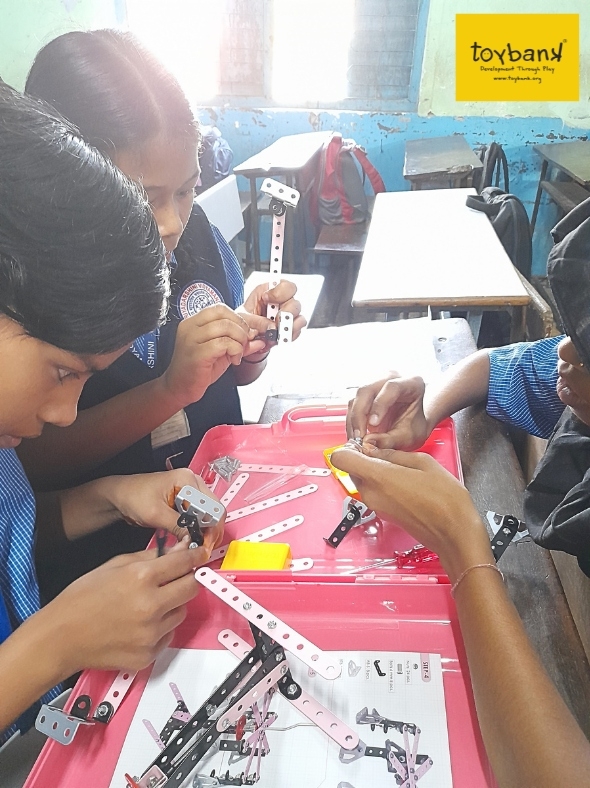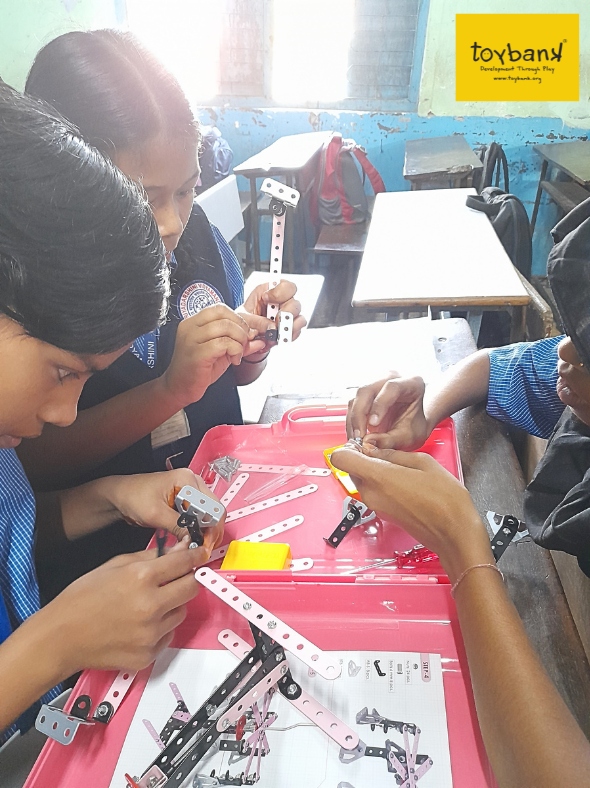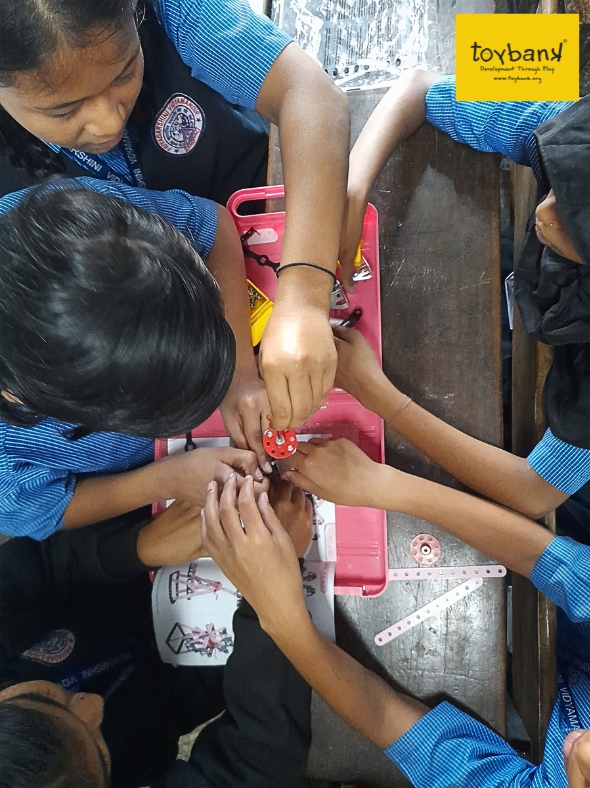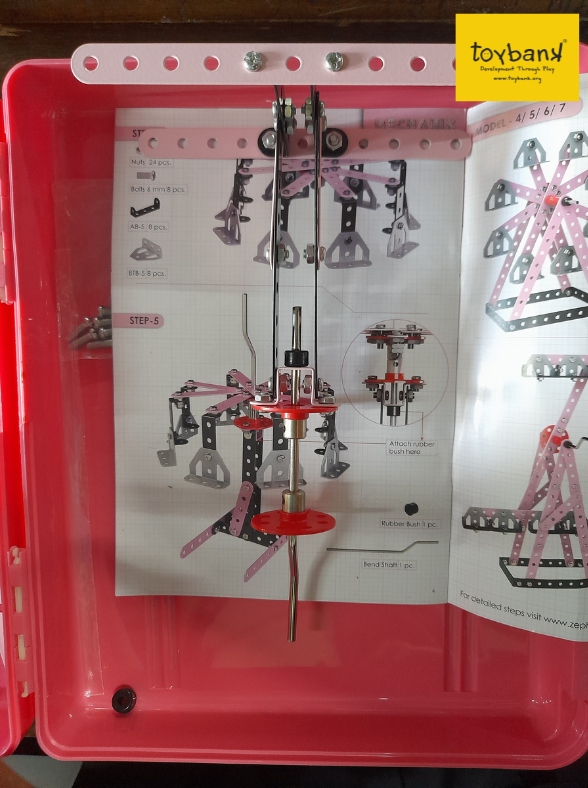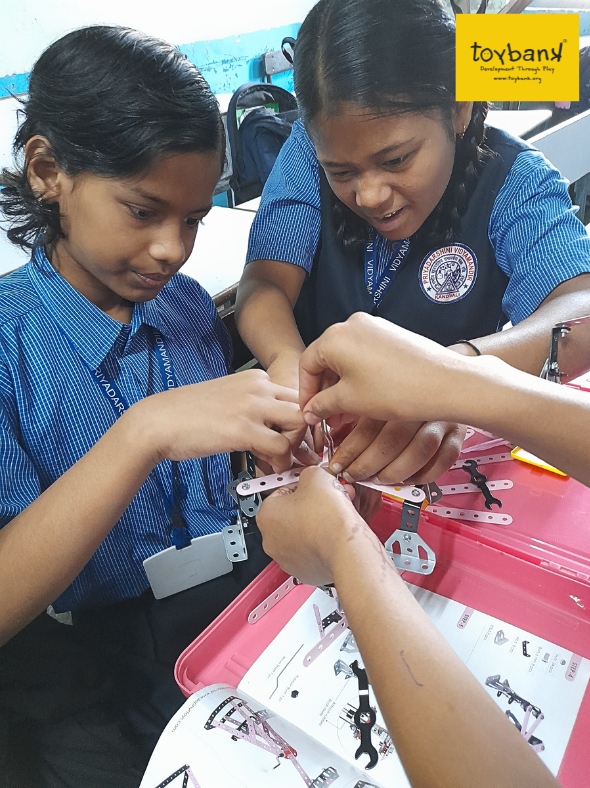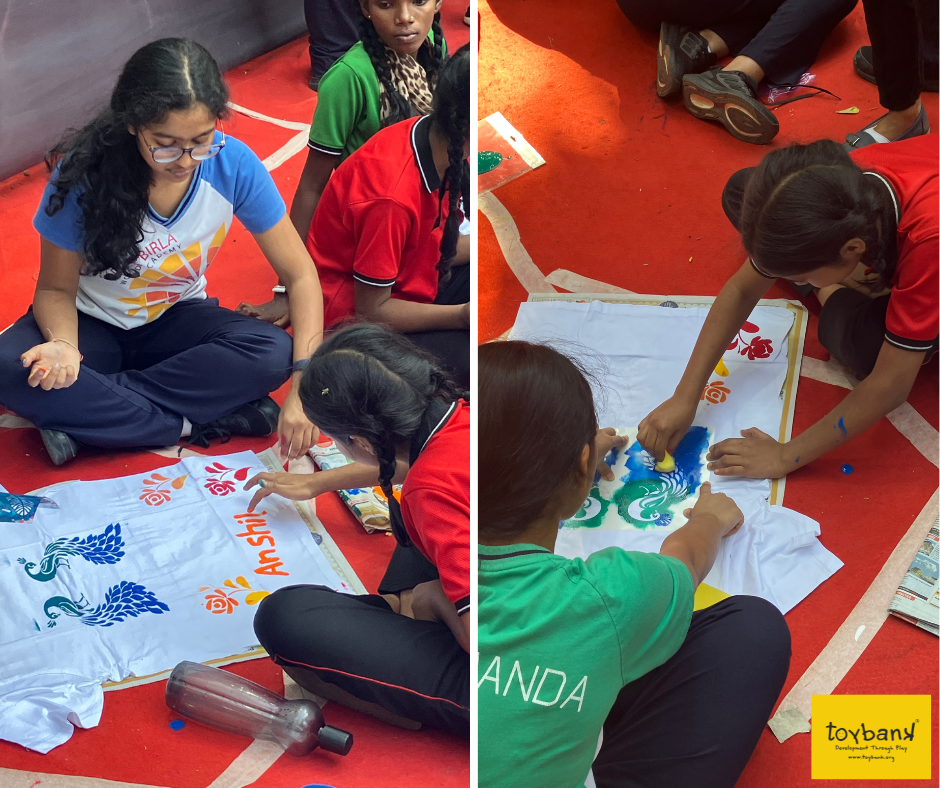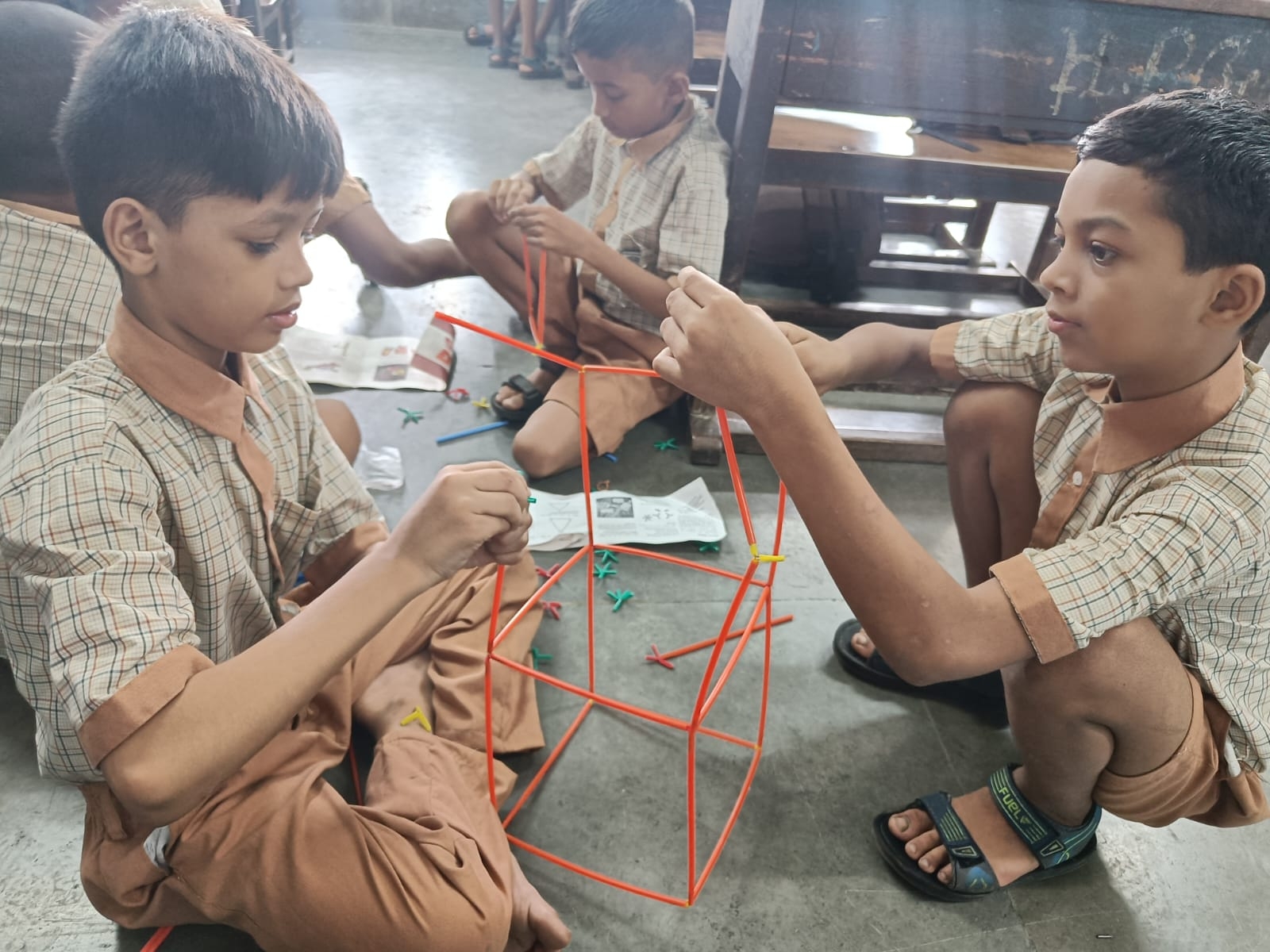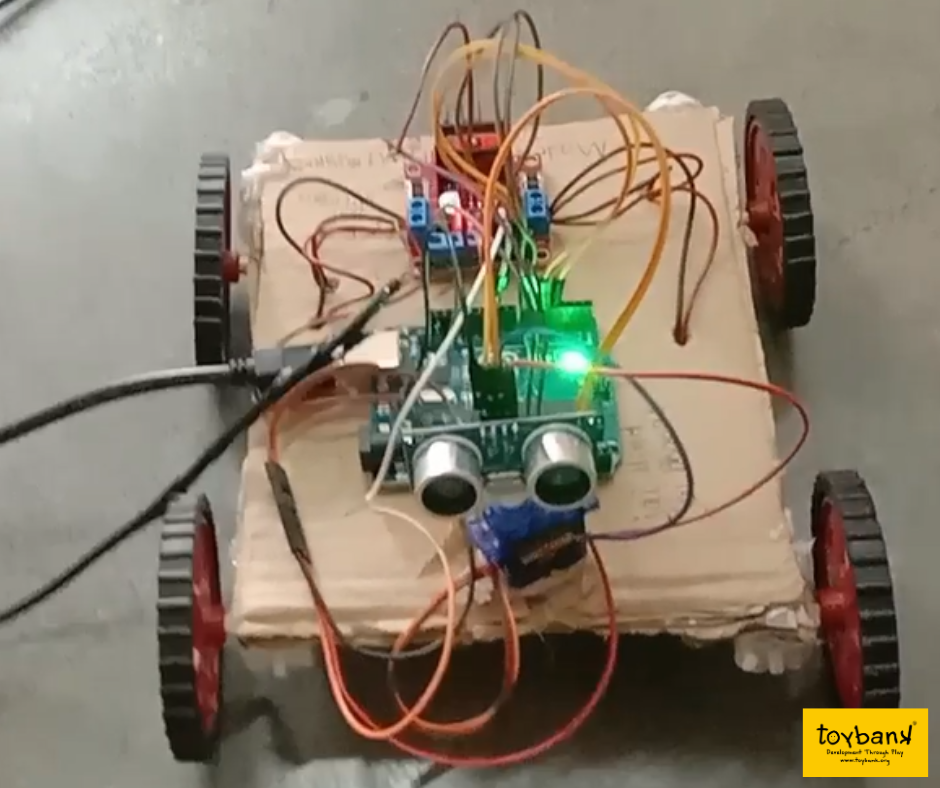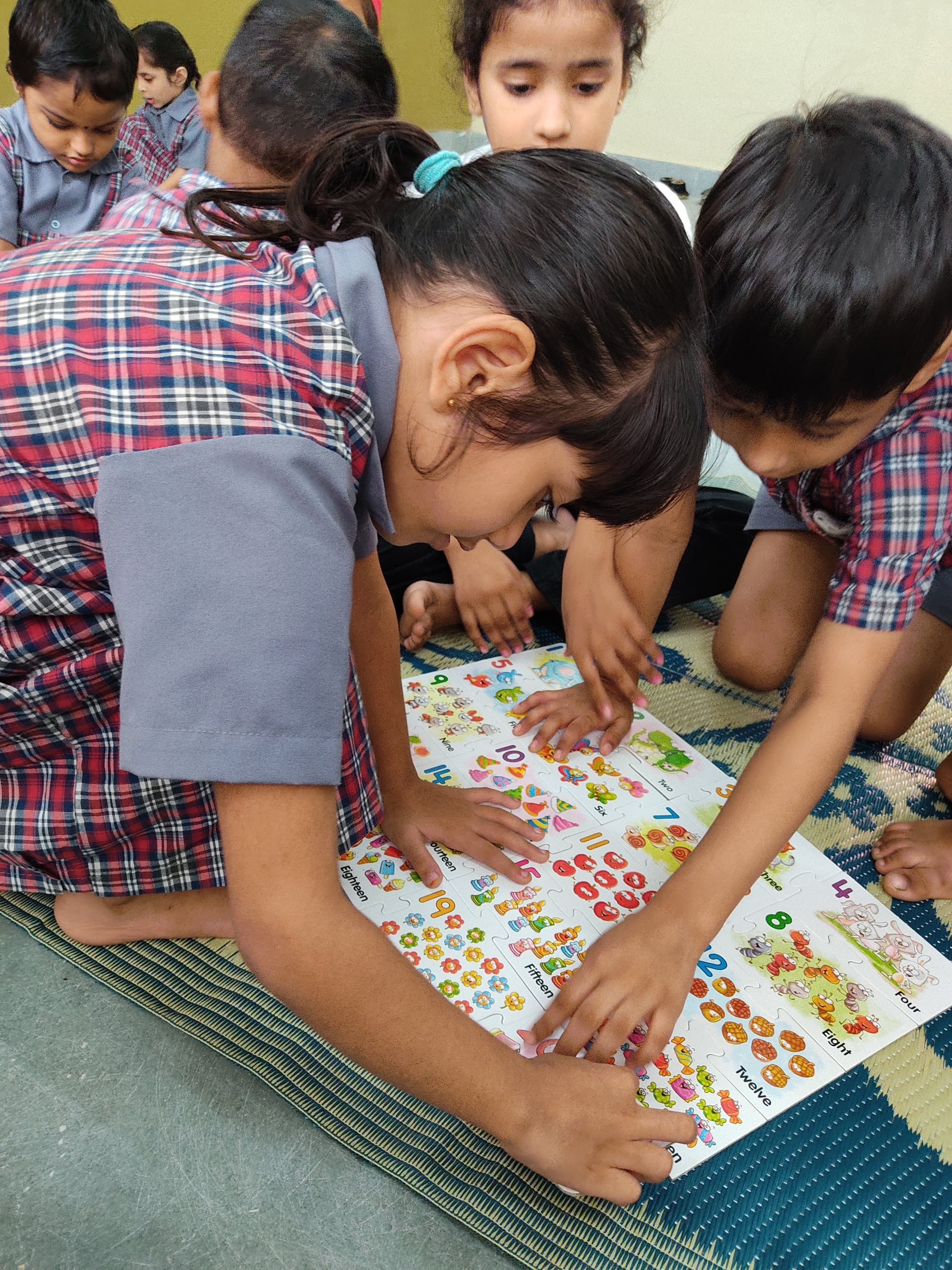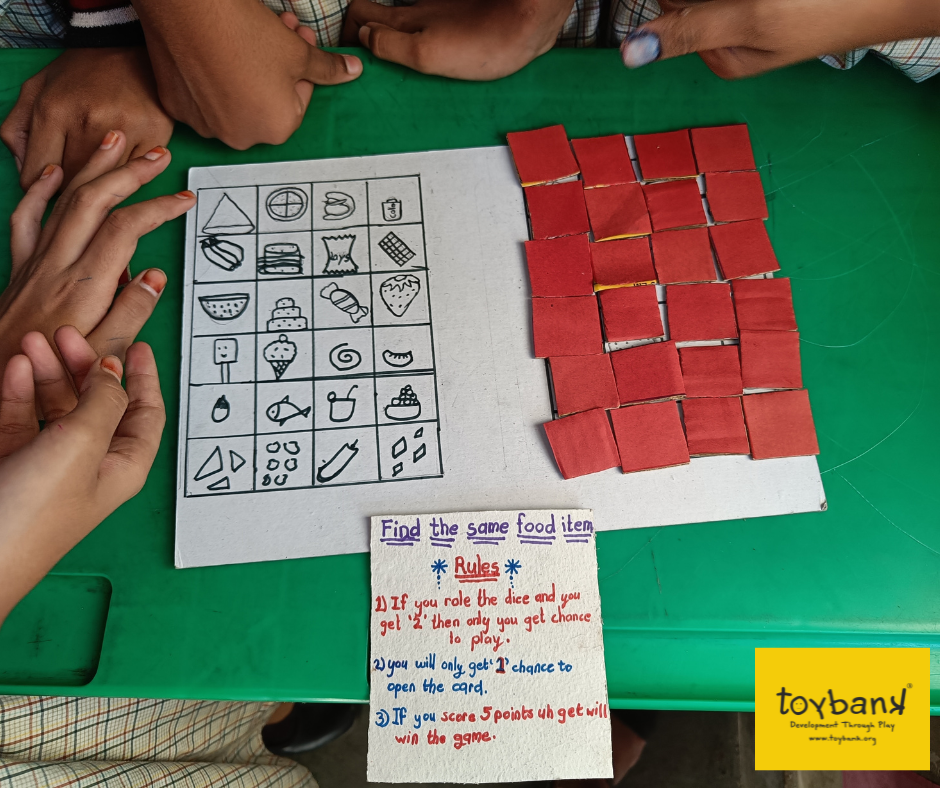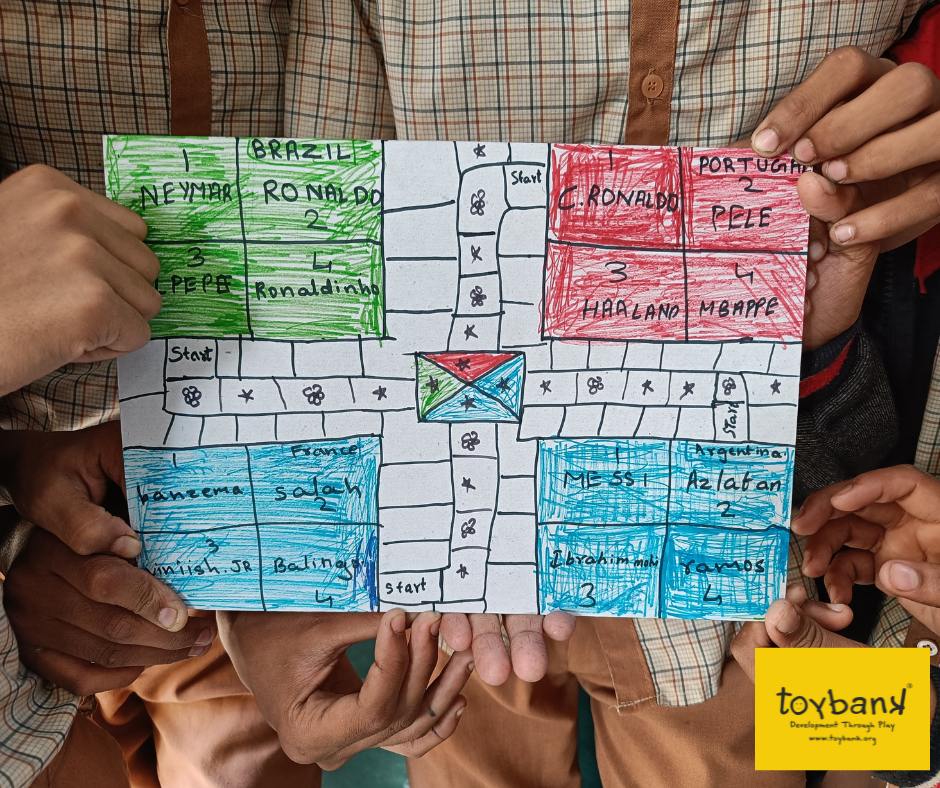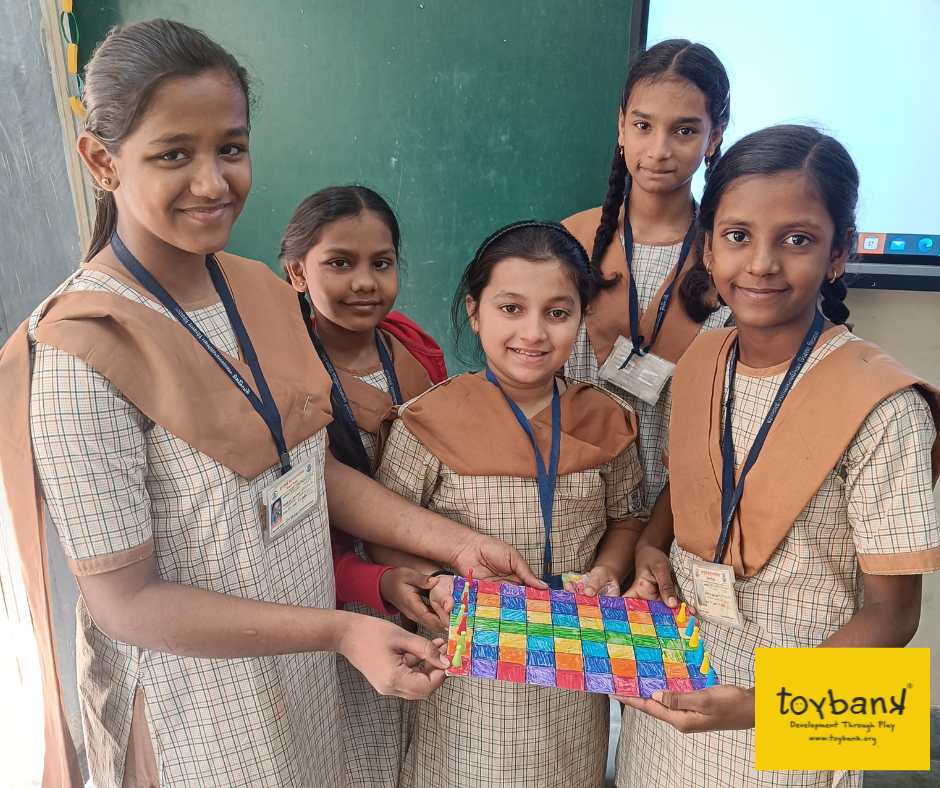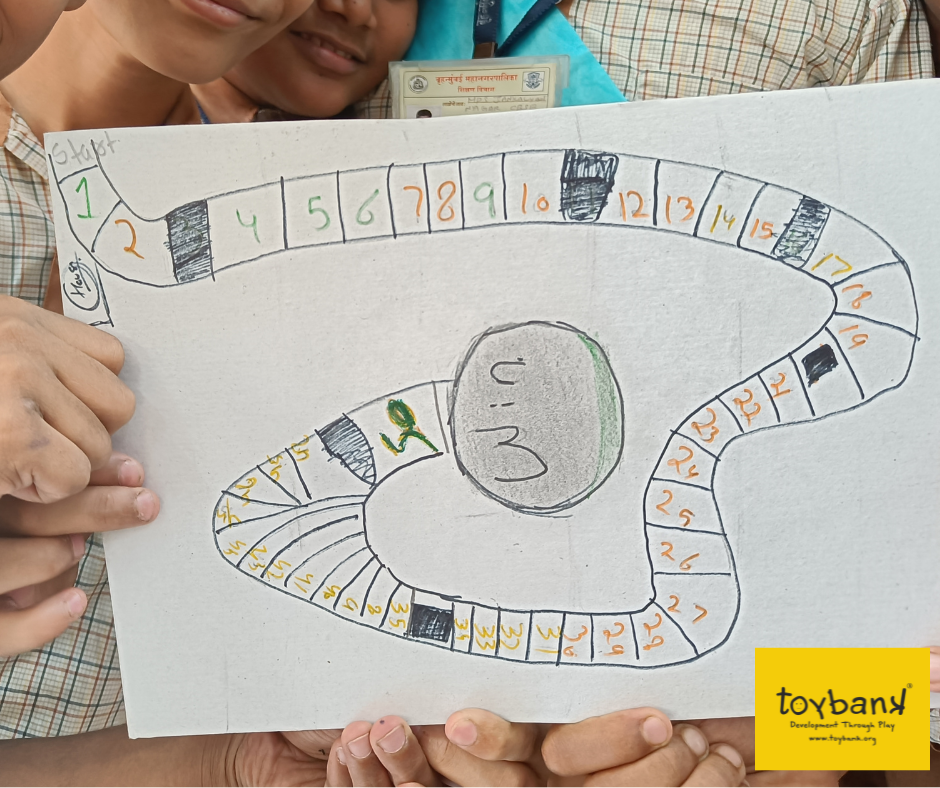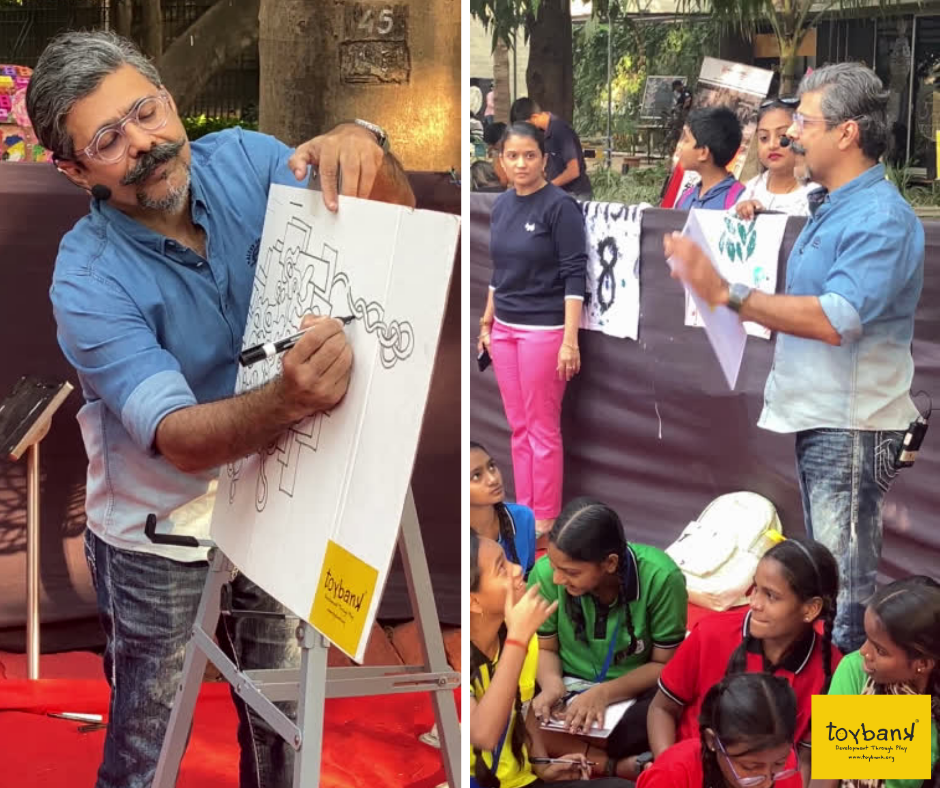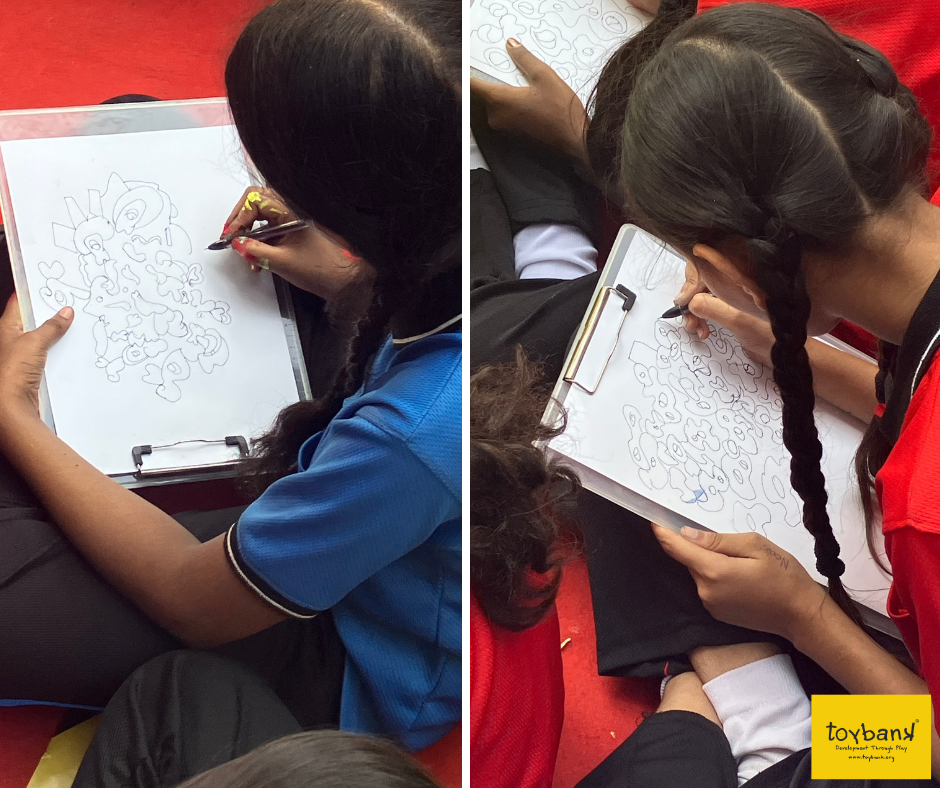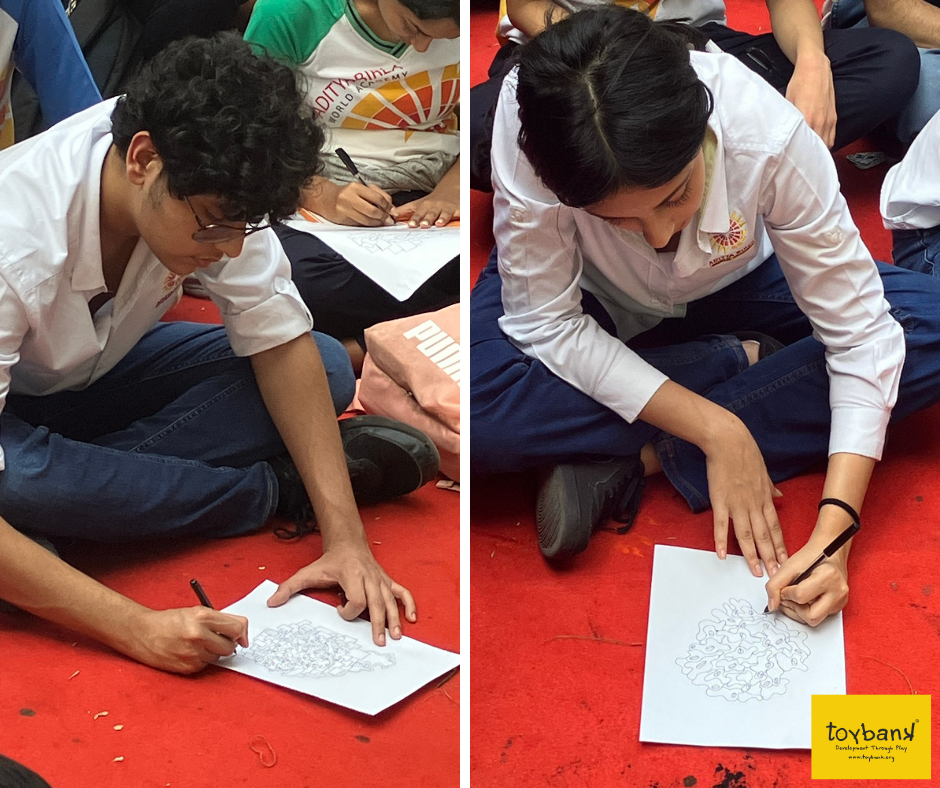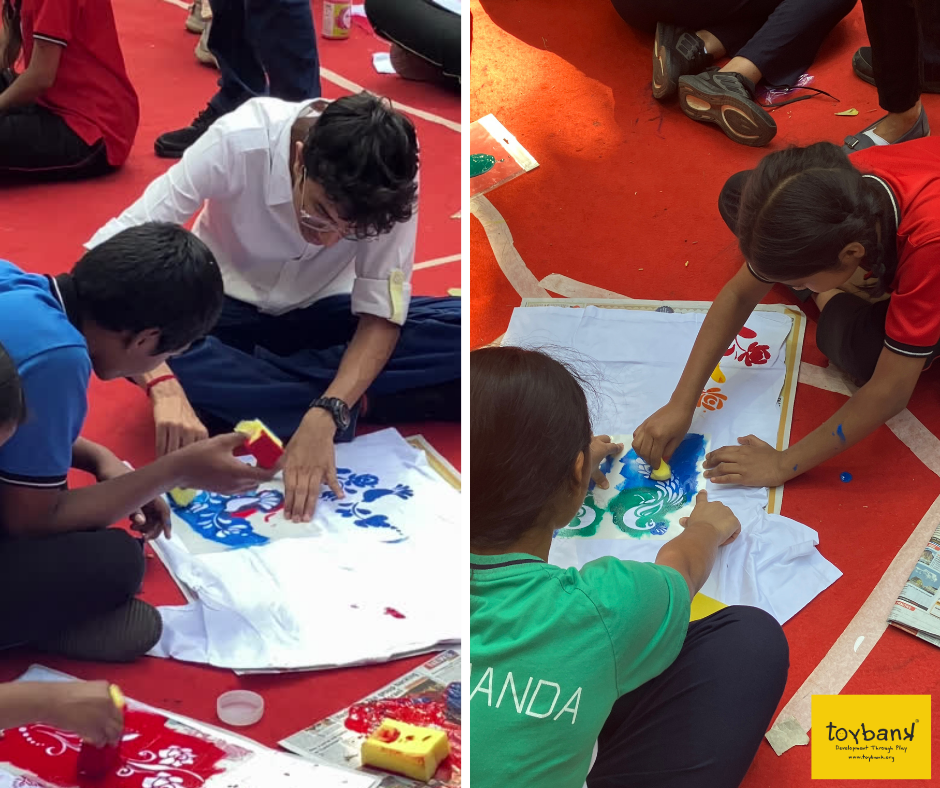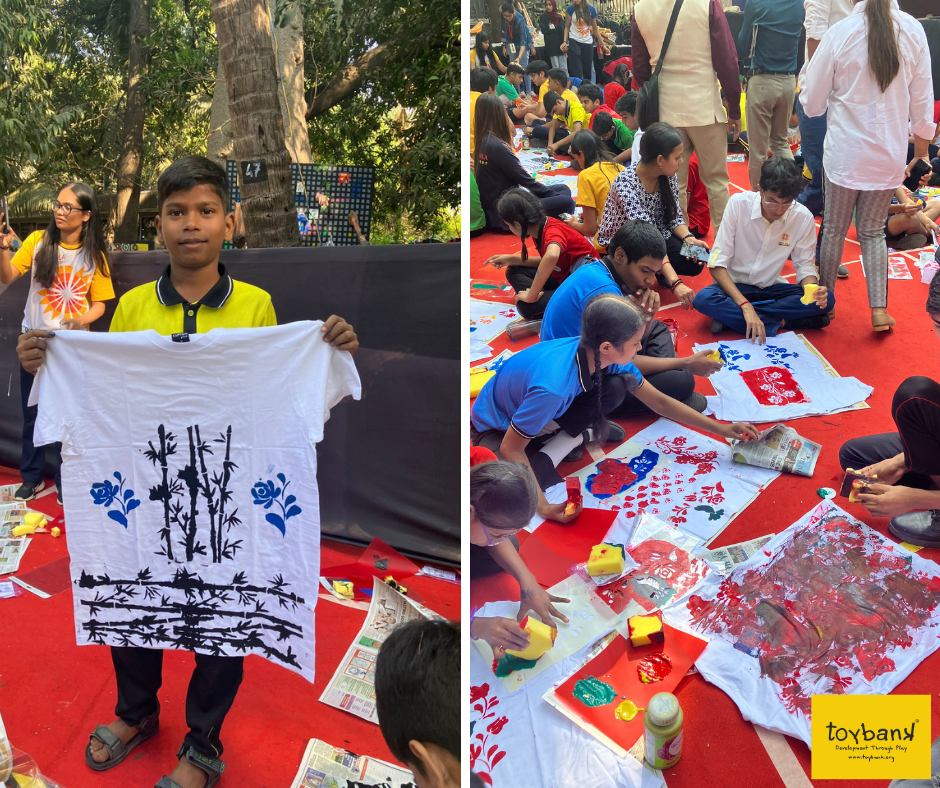Class 5 students develop collaboration skills through play
Research shows that play has a transformative impact on children’s holistic growth, equipping them with the skills and mindsets needed to grow into well-rounded adults in an ever-changing, increasingly volatile and uncertain world. At Toybank – Development through Play, we are committed to building critical life skills in at-risk children by increasing their access to play.
In one of the play sessions at the Maharashtra Vidyalaya school in Mankhurd, our Outreach Play Worker (OPW) observed that a group of three girls would not interact with anyone in class. They are all 11-years-old and studying in Class 5.
In order to get them to interact with the other classmates, the OPW introduced them to games that would help them develop collaboration skills. The board games included puzzles of the Solar System and India Map, numeric games such as Multiplication, Tic-Tac-Toe and strategy-based games such as African Safari and Othello. All of these games require them to play in groups and interact with others.
When children play in groups, they are encouraged to collaborate, communicate and share ideas with each other. This strategy helps in developing social skills, problem-solving abilities and teamwork. The OPW had learned about this during one of the workshops we organised and decided to use the same strategy with this group.
This helped the group gain confidence to talk and play with the others in class and, while having developed essential life skills. In conversation with the OPW, the teacher spoke about how play sessions have been benefiting children and also helping with their mental well-being.

